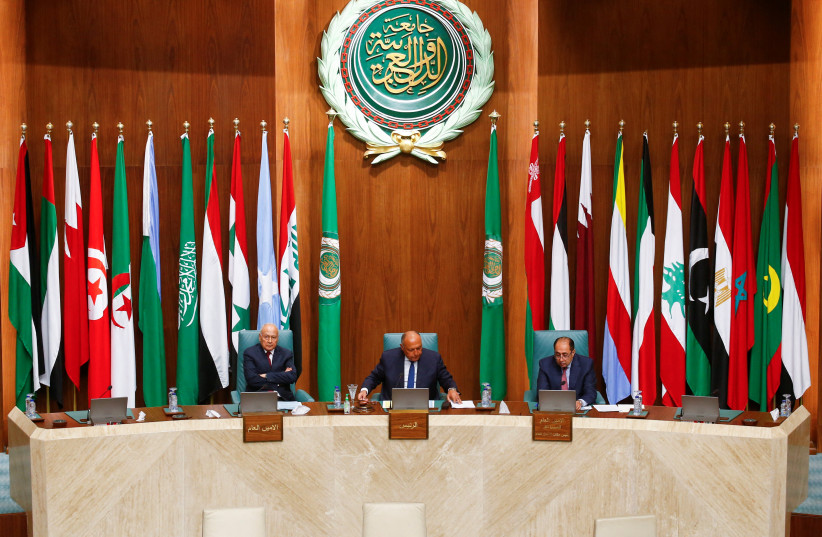Jordan reportedly carried out strikes against drug traffickers inside Syria, reports published overnight have claimed.
The incident comes amid rising tensions in Daraa in southern Syria, which was retaken by the Syrian regime in 2018 but has continued to experience tensions between former Syrian rebels, the government and other factions. Syrian-based drug trafficking is a major problem in the region, including in the multi-billion dollar trade in Captagon.
The Syrian Observatory for Human Rights, based in the UK, noted that there were explosions heard overnight in the Yarmouk Basin area near the Jordanian and Israeli Golan border. The report claimed that Jordan had targeted the area to strike at the drug trade “in coordination with the regime, especially since Jordan confirmed that it would combat drug smuggling operations into its territory.”
Later SOHR said that they had confirmed that a prominent drug dealer had been targeted. The drug dealer, known as Marai al-Ramathan was killed along with his family the report said. The Associated Press also reported the same information. The Alma Research and Education Center, which covers security issues on Israel’s northern borders, noted that “The main site bombed by the Jordanians was already located by us in July 2021 in a special report we published on the drug industry in southern Syria. This is a Captagon production site located in a wastewater treatment facility located south of Al-Muzayrib near Al-Yadudah, northwest of Daraa city.”
They further noted that the second site struck was the one where Ramathan lived. They say he is also known as Abu Hamza and that he “is a Bedouin from the village of Al-Sha’ab in the east of Sweida. About 45 years old. He is considered one of the biggest smugglers in the region.”

The report says he is linked top pro-Iranian Shi’ite groups and the Syrian regime’s 4th Division in the area. SOHR denounced the reported killing of the dealer’s family.
Jordan was one of many countries that supported Syria returning to the Arab League in an announcement on Sunday, but at the same time also wants Syria to crack down on the drug trade. In the past, Jordanian security forces have clashed with drug smugglers that come from Syria, many of whom are well-armed and may be linked to Iranian-backed militias.
The full details emerging from Syria and Jordan are unclear and neither of the countries' state media has reported on the incidents. However, other reports online, most of them linking to a website called Khaberni, said that people in the border area near Irbid in Jordan could hear the explosions. Others online reported that they heard airplanes flying overhead, although the accuracy of these reports cannot be verified.
It's not clear if the explosions heard overnight were the result of a Jordanian operation, but widespread rumors assume that the incidents were linked to air strikes or artillery shelling.
The explosions come amid a wave of other incidents in southern Syria where there is still unrest and a lack of security. In recent days, armed clashes broke out between men from the town of Jasim, and in Umm al-Mayadin, which is also in Dara’a governorate, there have been reports of protests.
The alleged incidents on the Jordanian border come as Jordan’s Crown Prince Al Hussein bin Abdullah II on Sunday attended a Jordanian night military drill, conducted as part of the graduation of the 12th advanced tactical aviation course.
Jordan state media said that “Crown Prince Al Hussein was received by Chairman of the Joint Chiefs of Staff Maj. Gen. Yousef Hneiti and Royal Jordanian Air Force Commander Brig. Gen. Mohammad Hiyasat, and was briefed on the various stages of the exercise, which aims to bolster the skills and capabilities of RJAF personnel.
"The exercise, conducted by personnel from the King Abdullah II Airbase, the King Abdullah II Special Forces Group, and the Sheikh Mohamed bin Zayed Brigade/Quick Reaction Force, included several simulations of military aerial and field operations.”
Can Syria really bring about stability?
The reports of incidents on the border would appear to be in contrast to the belief that Syria’s return to the Arab League will bring stability. If Damascus can’t contain the drug trade, it is hard to see how it can bring stability.
It would seem extraordinary that Jordan would suddenly carry out airstrikes across the border, after years of not carrying out strikes, the day after inviting Syria back to the League; unless of course, this was part of a backroom deal.
It should be assumed Amman would be reticent to carry out strikes that would further destabilize Dara’a or encourage former Syrian rebels to believe they have backing for their own activities. Many Syrians fled to Jordan to places near the border, and seeing Jordan acting inside Syria would send them a message. As such these types of incidents, even if they are rumors, can be interpreted differently by those on the ground and in the region.
